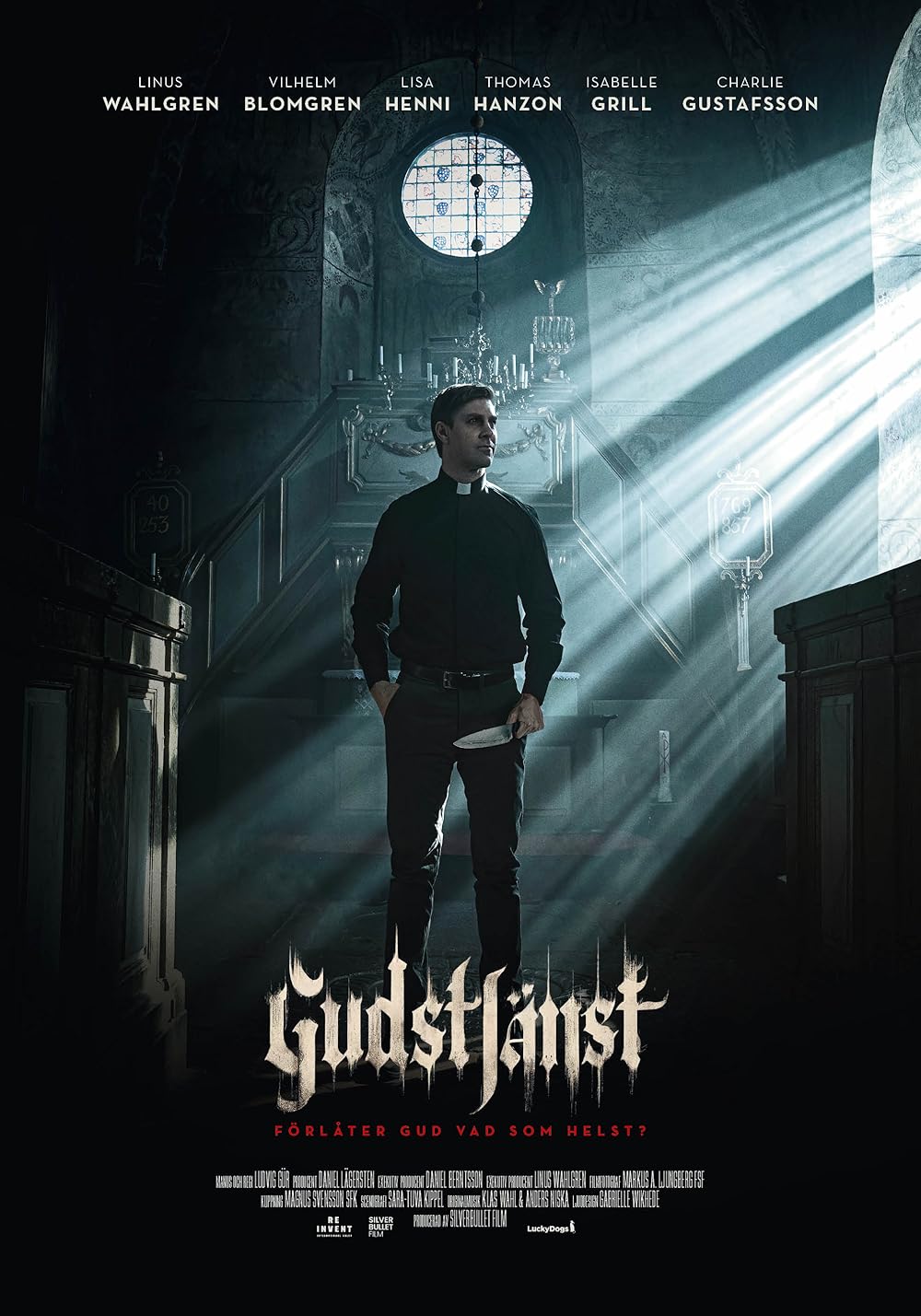

There’s a quote often attributed to Mark Twain on the concept of faith: “faith is believing what you know ain’t true.” It’s a touch cynical, but it nails down the concept rather eloquently. But perhaps that cynicism is well founded. Ludvig Gur’s Gudstjanst (In The Name Of God) is an effort to understand not just the nature of faith itself but also the terrible consequences of misplaced faith and rabid fanaticism.

Gudstjanst is the story of Theodor, a minister at a failing church who wants more out of life. After a meeting with Jonas, the older minister who inspired him as a boy to take up the profession himself, Theodor finds himself immersed in a bizarre storm of the miraculous and tragic. Suddenly gifted with the ability to heal with a touch and a prayer, he is soon struggling to make sense of a world where God only listens when offered something in return, faith itself isn’t nearly enough, and the price for a miracle is unspeakable.

The strength of this film is strangely more in the message and theme than anything else. Gur’s depiction of a man of God struggling with faith feels almost judgmental of those who only have faith when times are good, a Jobian parable in which trust in God ought to remain steadfast regardless of the circumstances in one’s life. He goes a step further in showing the perversity of faith becoming transactional; that is, only truly believing in God when one gets something tangible in return. But, in true horror movie fashion, there is a price to be paid for that something tangible. Not only is Gur’s version of God furious at the lack of faith, but also in the lack of sacrifice. Indeed, for a film in which the protagonist is a Christian minister it felt deeply immersed in the Old Testament. It all blends together into a film deeply critical not necessarily on disbelief but more on belief for the wrong reasons.

I don’t think this film really worked for me, but not for a lack of trying. Gur is clearly grappling with some rather interesting concepts, and on that front, I do think he succeeds. It’s an ambitious film, swinging for the fences the entire time. Unfortunately, the technical execution doesn’t entirely work. There’s an introduction of a new narrative thread about forty minutes in that felt like it should’ve been in the film the whole time, and the twist towards the end felt entirely unearned. Likewise, the shift in tone towards the end in which something akin to folk horror is introduced also feels disjointed and forced. There were a lot of elements introduced too late in the movie to work with the initial story and instead felt rushed and hastily tacked on. To be fair, all the things I mentioned could have worked if they were brought into the film earlier, but by the time they’re introduced it was like trying to add an ingredient to a dish that was already mostly done.
Gudstjanst is an intelligent film. There’s a lot flying around the whole time that make it at the very least an interesting watch, and it will certainly give the philosophical/theological viewer a lot to chew on. But ultimately it feels like a not quite up to snuff vehicle for some heady ideas, and I think it suffers for that. Its reach is grand, yes, and in the end that reach overextends itself.




